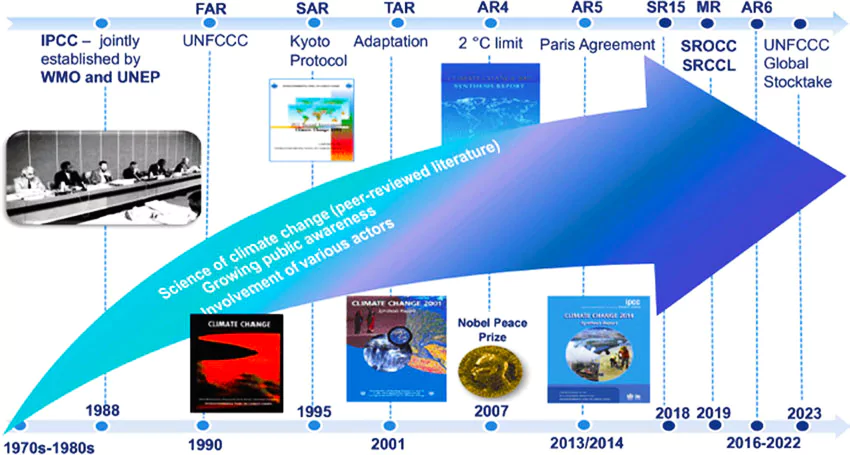![]() 19 Feb 2024
19 Feb 2024
The IPCC Bureau will produce the full assessment report, synthesis reports, methodology reports, and a special report as part of its seventh assessment cycle (AR7)
 Formation: IPCC was created by the United Nations Environment Programme (UN Environment) and the World Meteorological Organization (WMO) in 1988
Formation: IPCC was created by the United Nations Environment Programme (UN Environment) and the World Meteorological Organization (WMO) in 1988| The Sixth Assessment Report (AR6):
The assessment cycle was from October 2015 to July 2023, and is a compilation of the main findings on results from three Working Groups and 3 special Reports.
|
|---|
| Must Read | |
| NCERT Notes For UPSC | UPSC Daily Current Affairs |
| UPSC Blogs | UPSC Daily Editorials |
| Daily Current Affairs Quiz | Daily Main Answer Writing |
| UPSC Mains Previous Year Papers | UPSC Test Series 2024 |
<div class="new-fform">
</div>